March 8 is designated as International Women’s Day. In Lakota society, we say our women are sacred. The story of the White Buffalo Calf Woman is shared to remind us of the sacredness of women. Yet, many of our own Lakota people – both male and female – exhibit misogynistic behavior.
The online version of the Merriam-Webster Dictionary, defines misogyny as hatred of, aversion to, or prejudice against women.
Before the wasicu stumbled upon this continent to begin their colonizing way of life, our people lived according to natural or spiritual law. Our ancestors understood Mother Earth was a living being and they respected her as such. The respect for Mother Earth is something the wasicu do not live by. We are witness to the misogyny clearly directed at Mother Earth in the form of the unrestricted extraction of her “resources.”
When the wasicu invaded this continent, they brought their own language and way of life. They did not view the women as sacred, in fact, Lakota oral history has many accounts of our women and children being abused, tortured, raped, horribly mutilated and murdered. Women and children all over the world still suffer these atrocities. The patriarch mindset is very toxic. There are many men – both Lakota and non-Lakota – who are misogynists. Toxic thought affects everything they do.
Lakota people, as well as other Indigenous nations, often speak about the sacredness of women. As women, we hold the power to navigate the transformation of spirit into a human body through childbirth. As life givers, our power to bring children into this world is the essence of our sacredness.
We also wouldn’t have a ceremonial foundation without the power of women. Pte San Win is the most sacred woman known to our people. Many Lakota people know the story of her coming and what happened to the man who had a toxic thought about her. She is also referred to as Woope because she brought the laws we are to follow when it comes to our way of life. Pte San Win gifted the Lakota people the Cannunpa used in all of our ceremonies.
Despite cultural teachings holding women sacred, most Lakota people do not believe women are sacred at all. Many on my reservation don’t view women as sacred. There are many Lakota men who disrespect women in thought. These men are condescending to girls and women. For example, in public meetings I’ve witnessed the disrespect aimed at women. I’ve listened to men say things to women that they would not ever think of saying to another man. Men generally overlook or deny this behavior – especially if they are active misogynists themselves.
Colonization brought many ills into our world, including misogyny. The mentality of colonizers is one which views women as second-class citizens. Colonizers invaded our land with misogyny embedded into their psyche. We’ve come a long way in terms of women’s rights; but the psyche of the colonizer has permeated society. Women are regularly subjugated in subtle ways.
Unfortunately, I’ve met many Lakota men in my lifetime who are active misogynists, even though they believe their disdain for women is hidden. Many of them also profess to be spiritual while they secretly harbor hate or deep-seated resentment for women. Most women can identify these misogynists by the way they talk to us in public.
For instance, the next time you attend a public meeting on any reservation, pay attention to how women are treated. Watch the expressions on the faces of the men when the women are talking and compare it to how they look when other men are speaking. Listen for the difference in how women are addressed – versus how men are addressed – when a man is chairing a meeting.
You can see the misogyny in tribal council meetings. For instance, some of the elected males treat their female colleagues differently. Again, it’s subtle behavior but many women recognize it. We might not say anything because we know the men will deny treating women differently, but we still recognize the behavior.
However, it’s not just Lakota men who’ve been contaminated by misogyny, there are also many women who have adapted a misogynistic mindset. Colonizers brought the mindset which dictates that women are subservient. There are a lot of factors which contribute to the thriving misogynists in contemporary Lakota society, including (but not limited to) Christianity, substance abuse, community violence, the boarding school experience, the workplace, domestic violence, college campuses and elected officials.
I’ve gotten really good at reading the non-verbal language of other people. Much of the time, I can spot these misogynists just by the way they look at me or other women. The difference in how the misogynist treats women is subtle. Women are known for our intuition. If something doesn’t feel right about the way you are treated by a man in a public setting, then there is likely some misogyny going on.
It’s ironic that many misogynists will also speak in public about the damage colonization has done to our people. They will present eloquent, passionate speeches about how colonization was responsible for the murder of our ancestors, the continued imprisonment of Indigenous people and the abuse our people suffered in boarding schools. Yet, these same men will continuously point out what they think a woman is doing wrong, especially in the work place or in Lakota ceremony. Their misogynistic psyche criticizes everything women do. These men constantly blame women for their own male shortcomings.
Misogyny is not Lakota tradition. Our ancestors honored the sacred power every woman holds. Yet, misogyny is prevalent in Indian country. While most of us look outside ourselves to solve problems, the key to overcoming misogyny begins at home with our family. In addition, our tribal programs, tribal councils and tribal schools should also take steps to overcome the misogynistic mindset of our males and females.
As parents and grandparents, it is up to us to instill Lakota values into our boys and girls. Today, many of our small children, teenagers and young adults are running amuck with zero guidance and no sense of spirituality. We are responsible for teaching our young Lakota people how to behave.
I am grateful to the men in my tribe who recognize Lakota women as their peers. The matriarchs in Lakota society deserve to be treated with respect by their relatives, elected officials and tribal citizens. Unfortunately, Lakota people tend to treat one another very badly. Lateral violence is a close relative to misogyny.
The cultural renaissance our young people are embracing is for naught if contemporary Lakota adults continue to believe misogyny and lateral violence are acceptable.
Please help your children understand the sacredness of women. Don’t let the misogynistic mentality poison the minds of our young relatives.
Winyan ki le lila wakan pi.
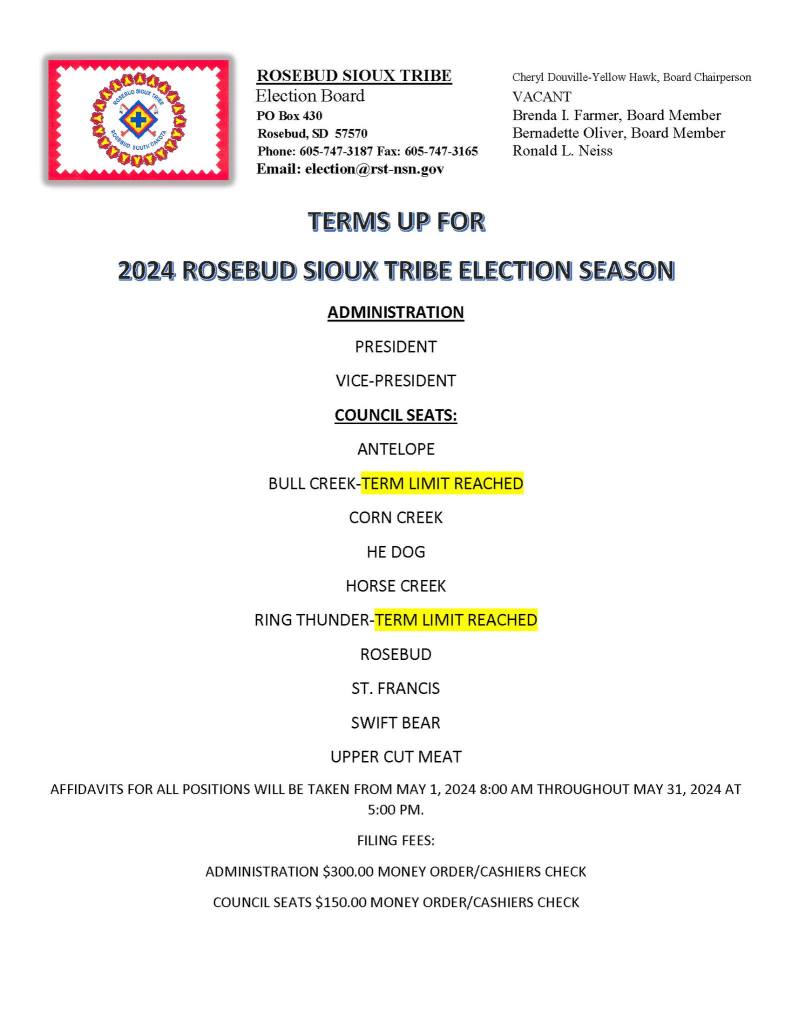
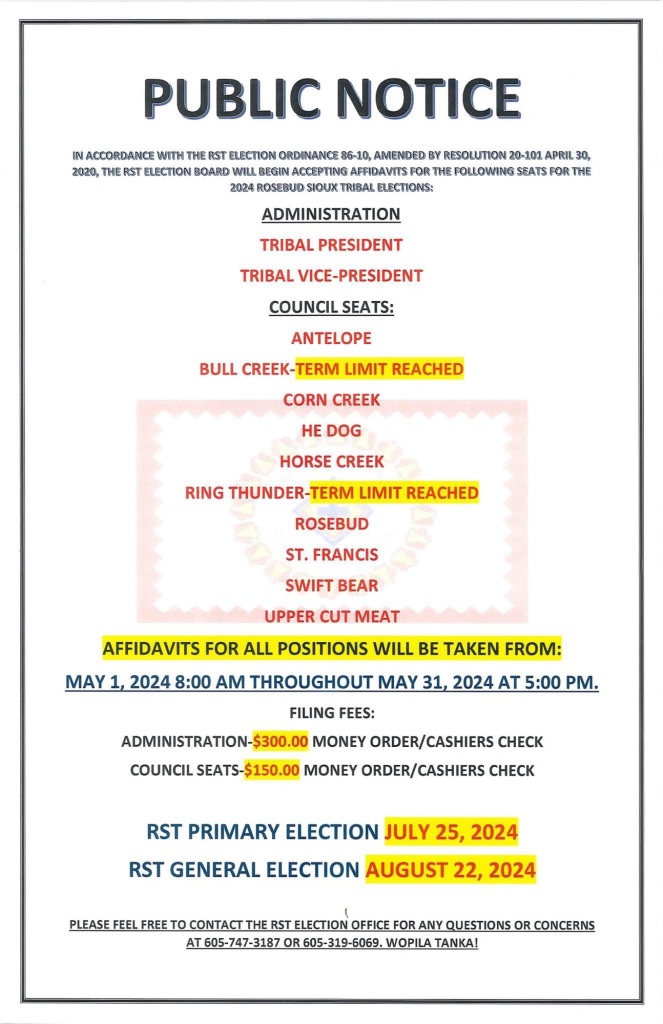
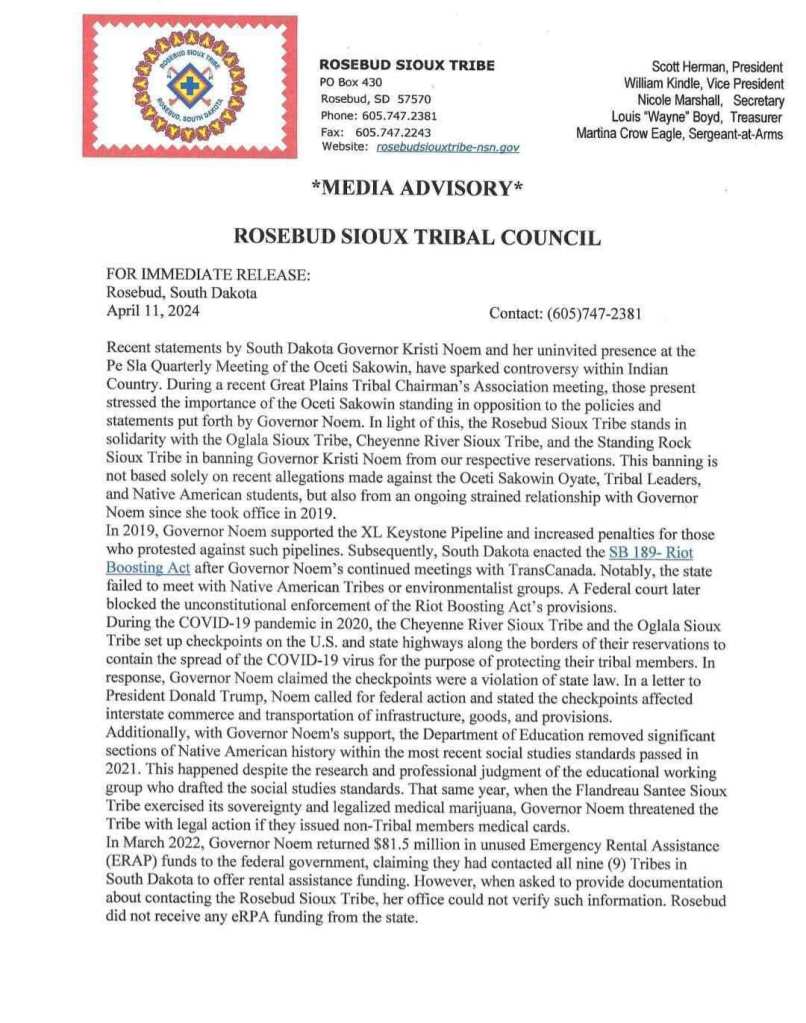
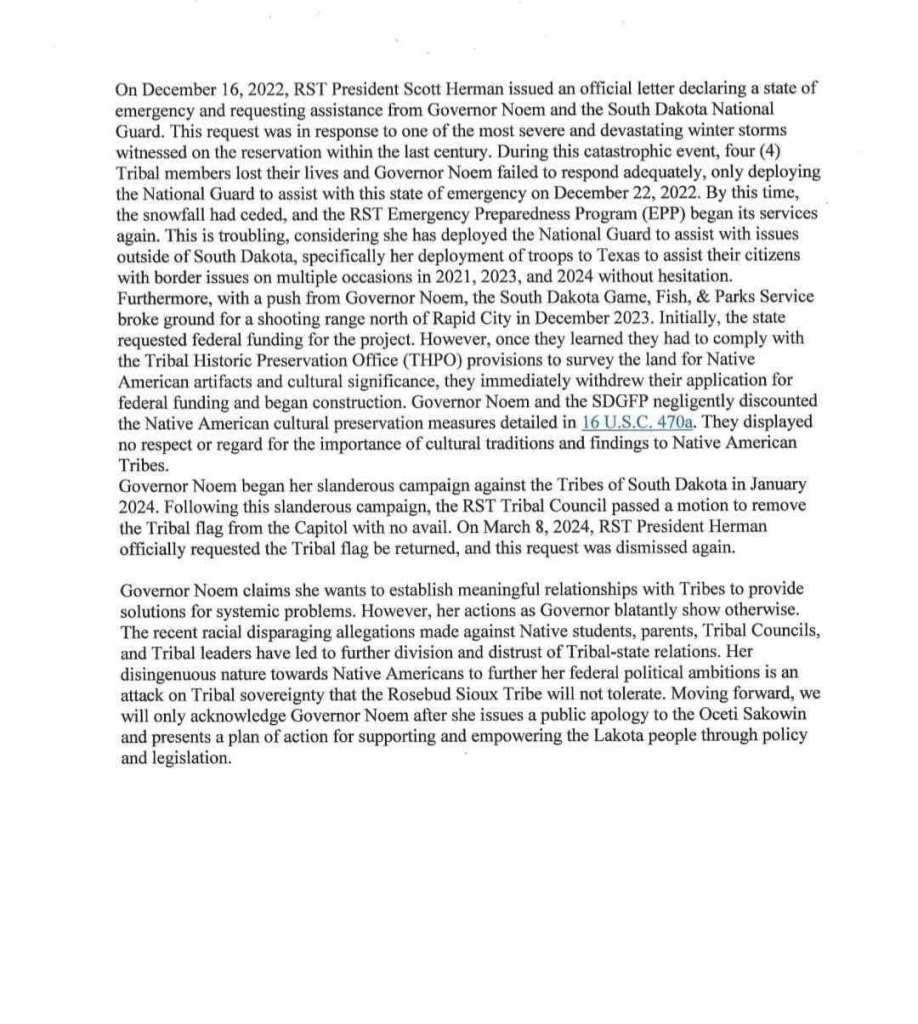
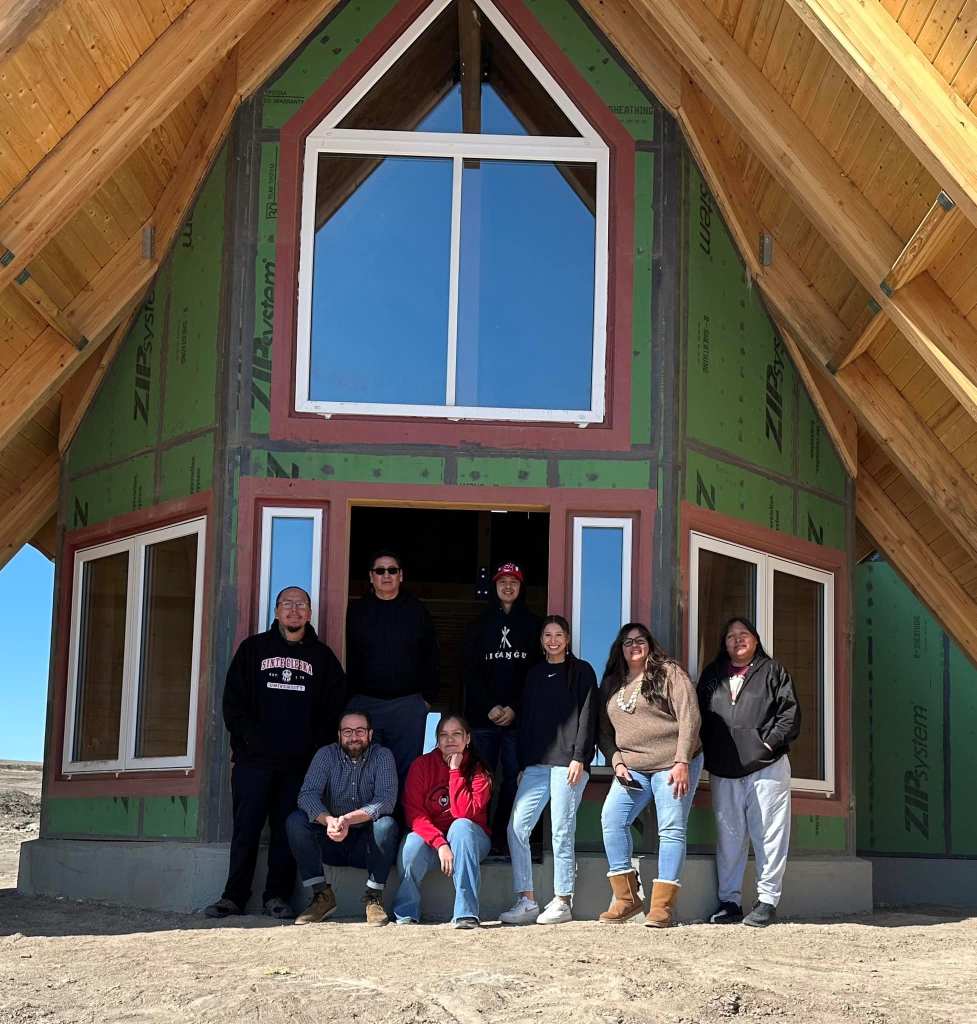
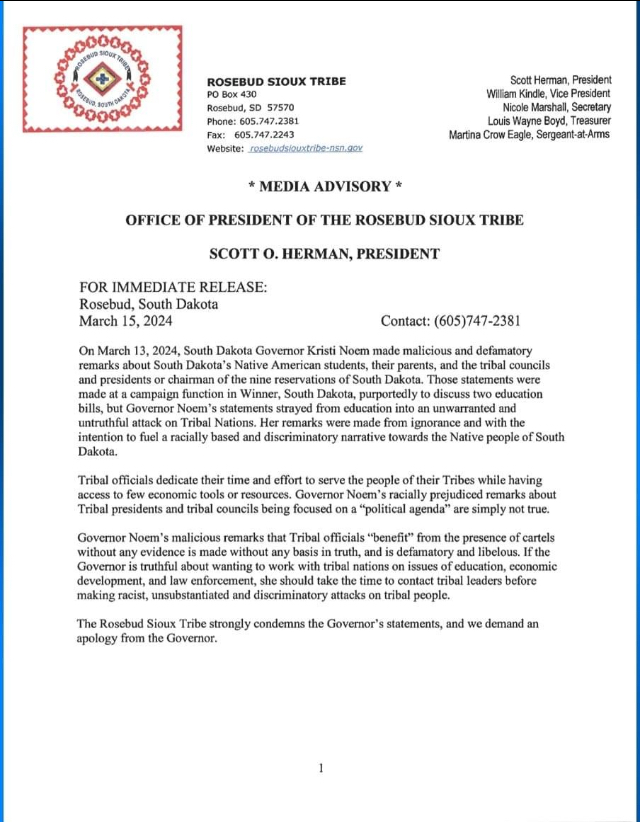



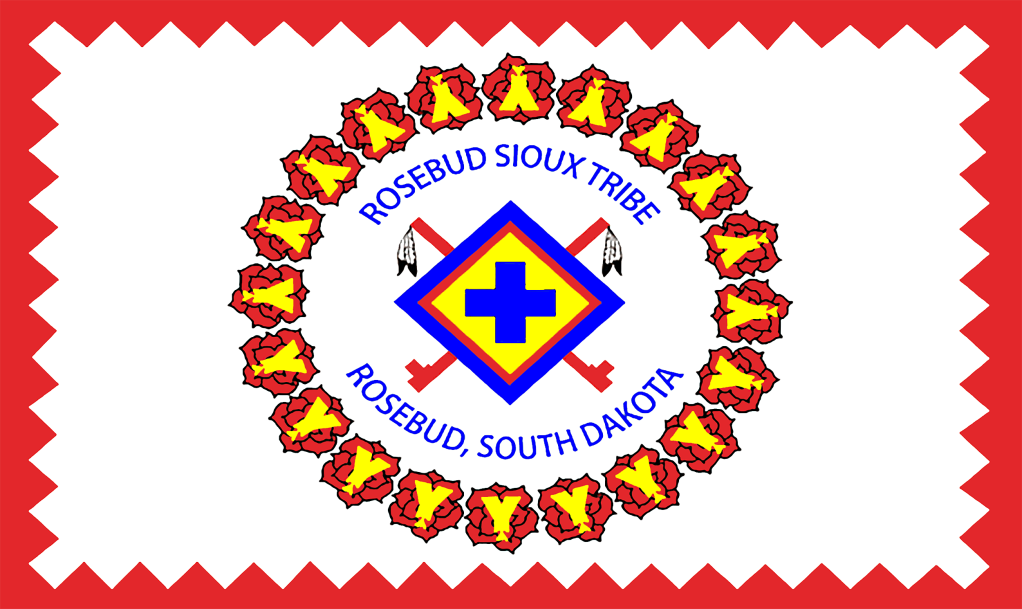
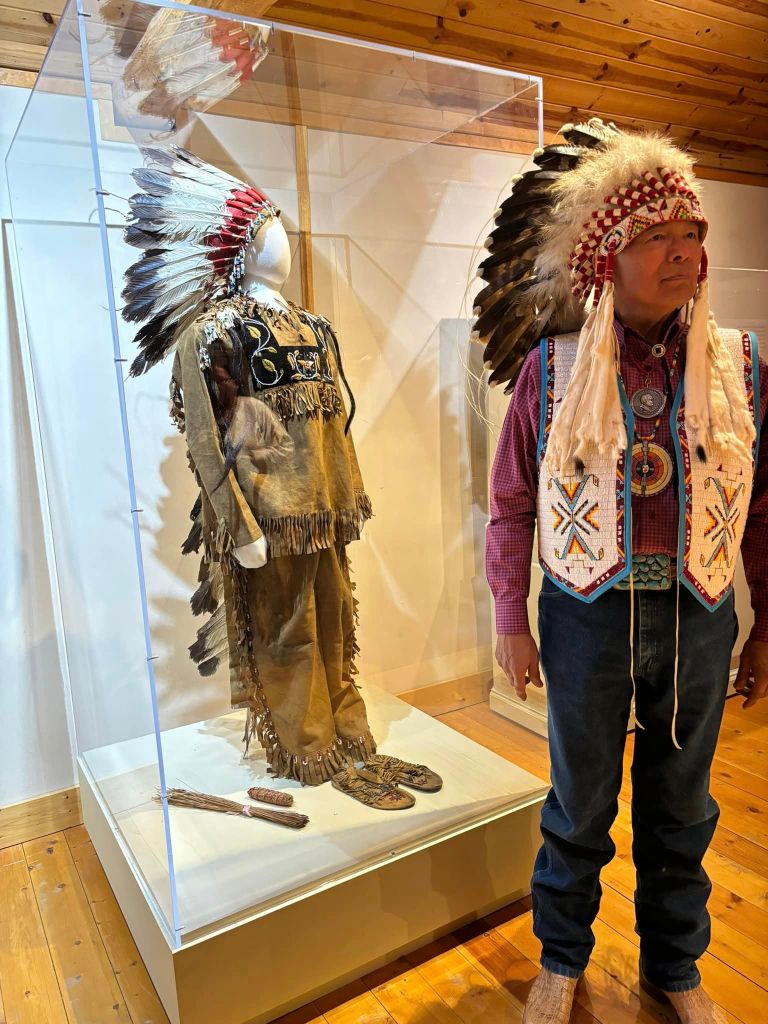
You must be logged in to post a comment.